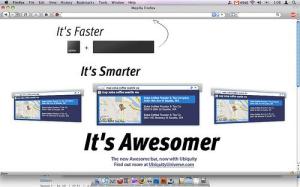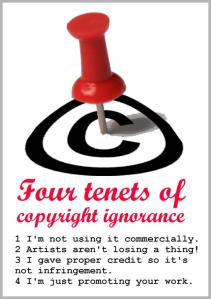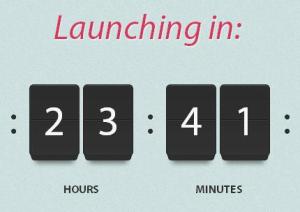 Writing landing page content might seem like a doddle. Once a client sends the brief and provides enough background information, you may think all that’s left is to put the copy into an easy-read and informative format, but you’d be wrong.
Writing landing page content might seem like a doddle. Once a client sends the brief and provides enough background information, you may think all that’s left is to put the copy into an easy-read and informative format, but you’d be wrong.
Not only do clients need great content on a landing page, but they want copy that gets readers so interested they decide to take the plunge.
Copywriters who achieve this goal are worth their weight in gold. They are the ones capable of keeping readers on a page, their copy generates more conversions which in turn means a brilliant bottom line for their clients.
Skill and Technique a Marriage Made in Heaven
Providing brilliant landing page copy takes a certain amount of skill paired with creativity, but it also involves technique. The good news is you may not be the best copywriter in the world (yet), but techniques can be learnt and then mastered. You do, however, need to understand how to use these techniques to your advantage.
Of course, it’s up to the client as to how content is displayed on a landing page, something which copywriters don’t generally have any control over.
However……..
Once the client has provided the info and you’ve carried out your own research into their business and that of their competitors, the next part is down to you. This is where mastering a few techniques can really benefit your copy so it produces more conversions.
Placing emphasis on benefits
For a long time, readers wanted to find a solution to a problem but over time this all changed. Consumers no longer care as much about products or services because “solution-selling” reached its sell by date a while back.
Why? Because people know the solution they need. In fact, they are so clued up they know every detail which includes the lowest price they should be paying for a service or item.
In today’s market, readers want to know about the benefits of using a service or buying a product. It’s still okay to mention the sort of solution that’s being offered because this reassures people they are in the right place. But to really get their attention, the emphasis has to be placed on the benefits of doing business with your client.
Landing page content has to be based around the benefits of doing business with the company you are providing the content for. When conversion rates start to increase, your copy will be more appreciated than ever before. It will be more valuable to your customers and worthwhile to theirs – it’s a win-win situation.

Killer headlines work
It’s pretty well accepted that people don’t read an entire web page, but much prefer to scan it searching for anything that catches their eye.
Rarely would a person read the entire page. As a copywriter, you need to adapt your style to produce compelling content knowing the reader will only skim over the text. You need to remember a person typically only takes in the following on a landing page:
- The headline
- Sub-headlines if there are any
- Images
- Call to action buttons
A person might read other parts of the text which includes the following, but they may not either:
- Major paragraph headings
- Bullet points – a firm favourite
- Short paragraphs – because they are easier to scan
- Image captions – need to be eye catching
Once you take all this in, you can then concentrate your focus on the parts you know will count, bearing in mind the most read part of the page will be the headline.
To encourage people to read more content, you should try the following:
- Write a bold headline that’s to the point, strong and clear
- A compelling sub-headline works wonders to promote benefits of services/products
- Use good quality images that emphasise the benefits of products/services
- Use compelling copy for call to action but nothing too pushy!
- Content needs to be kept in large sections which boast killer headlines in larger type
- Short bullet points work well when explaining the benefits of products/services
Copy needs to be kept simple
Keep your copy simple, long winded sentences don’t work. The key to writing great landing page content is to keep it simple. Some of the most successful businesses have the simplest landing pages because they know they work!
Clear, precise and uncomplicated copy works wonders and there’s no getting away from this fact. In short, you need to come up with a clear statement and not spend hours putting together a ton of copy that people just won’t read.
Danger Zone
However, keeping copy simple doesn’t mean using meaningless content or buzzwords. You still need to get creative and be very careful not to use certain words and phrases which should be avoided at all costs, a few of them are listed below:
- World leader – a real no-no
- Once in a lifetime opportunity – an absolute no-no
- Best in town – never a good idea
There are many other phrases which are tempting to use as taglines but which you need to avoid because they just don’t hold any water!
Keeping landing page content simple yet creative works and can be achieved by doing the following:
- Using simple sentence structures
- Short sentences with short words are best because they’re easier to scan
- Avoid using fancy phrasing and wording = it’s not poetry
- Be succinct, clean and precise
Write like a person for other people
It’s a simple but very important point. You need to write like a real person and not a robot. People like to connect with whatever they read which means making your copy personal and not robotic. Below are a few tips on how to achieve this:
- Write sentences in the same way as you would say them
- Stick to simple words
- Use short sentences
- If a sentence sounds great and reads well = break a few grammar rules!
- Add a little humour to your copy
- Always use the first person
- Using every day expressions works and this includes things like “hang on a second” or “wow, that’s awesome”.
The trick to writing great landing page copy is to get away from the idea you are actually writing “copy”. Instead, try to write the content as if it’s a conversation because it will make you sound more human and less like a machine. This encourages people to connect and interact. The result? Great landing page content that converts!
Author: Honey Wood
Protect your work with SampleSafe
Tell the world about the projects you’re working on with I Just Won a Job!







